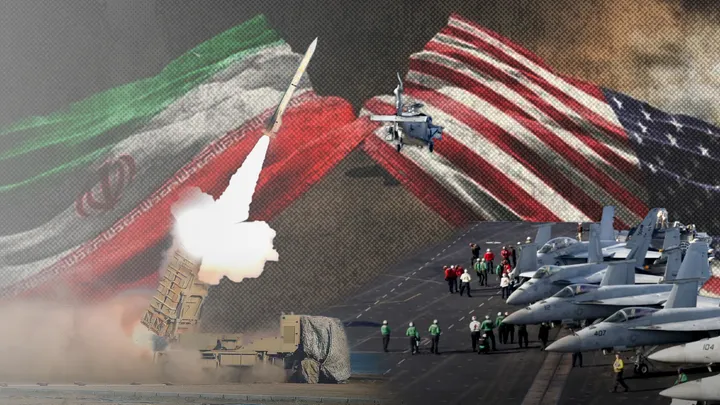There are no words that could convey to millions of Palestinians and Arabs the magnitude of the crushing defeat of 1967.
How could the trusting millions - who devoured rhetoric and enthusiastically signed up to defend their land in the ‘ultimate battle' – ever have known that Israel was more than prepared to take on several Arab armies? Or of the massive western backing in both arms and intelligence to ensure the complete defeat of the Arabs?
Indeed, enormous shipments of American HAWK missiles, West German Patton Tanks and French Mirage Jets were far superior to old Soviet rifles and outdated technology on the Arab side. Moreover, American intelligence in particular guided every Israeli military step, enough to bring the demise of the Arabs in the most degrading fashion possible.
The war of 1967 was a defeat of another kind, and not only because the Israeli army managed to overwhelm Arab forces beyond any possible interpretation of a "political victory", a "symbolic victory" or any other type of "victories" that Arab regimes arbitrarily invented and faithfully commemorated.
***
On the morning of June 5, the Egyptian air force was completely destroyed as its entire fleet sat on the tarmac. Within the next 24 hours, the air forces of Jordan and Syria were also heavily pounded. By June 7, Jordan had ceded Jerusalem, and the rest of the West Bank. By June 10, Israel had captured the Gaza Strip and the entire Sinai Peninsula. Syria, too was forced to concede its strategically and economically prized Golan Heights.
Within days, Israel had occupied three times more territories than it did post-1948. Other numbers were equally staggering. Israel had lost 766 soldiers, while Arabs lost tens of thousands of troops and civilians between the dead and wounded. Egypt alone lost more than 10,000 soldiers and Jordan, much smaller in size and population, over 6,000.
Demographic realities were fundamentally altered, as all of historic Palestine fell under Israeli control, and the Jewish State dominated four times as many Palestinians, a mix of old and new occupied people and occupied territories.
In the West Bank, many villages were forcefully evacuated; new lines demarcated freshly designated security zones, buffer belts and so on. Hundreds of thousands of West Bank and Gaza Palestinians instantly became refugees in Jordan, Egypt and subsequently other countries. But 600,000 remained in the West Bank, and 300,000 more held in Gaza.
***
The Israeli army reigned supreme and uncontested. The Arabs were defeated, not just in the material sense, but were psychologically traumatized as well. What happened in June 1967 was not just a Second Nakba, or "Catastrophe", but a Naksa as well, meaning the great "Setback". The term was not randomly coined, for it expressed the collective sense of complete dismay and disillusionment that permeated Arab peoples' consciousness at the time.
But the lasting outcome of the defeat was much more profound than charts and figures indicate. For one, humiliation cannot be articulated by numbers.
So much had changed during those short, but painful days of war. Old legends died and new myths were born. And because Israel's victory was complete, Israel had the opportunity to produce new stories in their entirety, leaving little room for the retreating Arab armies, proud or cowering regimes to define much, save the extent of the humiliation and the magnitude of the infamy.
In Israel, and around the world, Jewish nationalism took on a new meaning. Israel's ‘Invincible Army' was born, and even cynical Jews began to view Israel differently.
Palestinian author, Nur Masalha wrote in Imperial Israel and the Palestinians:
The Occupation of Sinai, the Golan Heights, the West Bank and Gaza... and the destruction of the combined armies of Egypt, Syria and Jordan, thrilled most Israelis and encouraged many of them to develop an imperial outlook and to embrace an imperialist project based on a conviction that their state was the strongest army force in the Middle East. The same expansionist instincts helped to sanctify the Zionist principal that ‘never again should Eretz-Yisrael be divided'.
That mindset continues to define the Israeli outlook 50 years after the war and the occupation of what remained of historic Palestine.
The international response to the war was hardly promising. The United Nations Security Council adopted Resolution 242, on November 22, 1967, reflecting the Johnson administration's wish to capitalise on the new status quo, suggesting Israeli withdrawal "from occupied territories" in exchange for normalisation with Israel.
The rest is history, and an agonising one. Israel entrenched its occupation; built hundreds of illegal settlements and is yet to implement a single UN resolution pertaining to its occupation, or previous violations.
Now, the Washington-led consensus on Palestine perceives no other solution to the conflict but the two-state solution; it deems armed resistance as a form of terrorism; and it sees the Right of Return for Palestinian refugees as impractical.
Palestinians who dare operate outside this "acceptable" paradigm are to be ostracised, boycotted and forced to change.
But the war and occupation also instilled even a stronger sense of nationhood among Palestinians. Prior to the war, the Palestinian people were fragmented between those who remained in their original homeland, those who lived in the West Bank and Jerusalem under Jordanian control, and those in Gaza, under Egyptian administration. Indeed, the Palestinian identity was in tatters.
The 1967 war united Palestinians, although under Israeli political and military control. Within years, the Palestinian national movement was thriving and its leaders, mostly intellectuals from all Palestinian regions, were able to articulate a new national discourse that remains in effect to this day.
On June 7, 1967 when Israel's Prime Minister at the time, Levi Eshkol, learned that Jerusalem was captured he uttered his famous quote: "We've been given a good dowry, but it comes with a bride we don't like." The ‘dowry' being Jerusalem, of course, and the ‘bride' being the Palestinian people.
Since then, that unwanted ‘bride' has been shackled and abused; yet 50 years of such mistreatment are yet to break her spirit.
And in that, there is a source of hope. Now that Israel, rich and powerful, has control over the whole of historic Palestine, it also controls a Palestinian population nearly of the same size as the Jewish population living in that same land.
The land is already shared between two people, but under entirely different rules. Jews are governed through a democratic system almost exclusively tailored for them, and Palestinians subsist under an Apartheid regime designed to keep them marginalised, occupied and oppressed.
50 years later, it is crystal clear that military solutions have failed. A sense of Palestinian nationhood has grown beyond Israel's ability to crush it or undermine it. In some way, the outcome of the war left Palestinians with no alternative but to fight their own battles. The resistance in Gaza, the growing Boycott, Sanctions and Divestment (BDS) movement and the various uprisings are all indicative of that change.
But Israel is yet to wake up from that feeling of invincibility obtained after the war. Yet for 50 years it has offered nothing but military occupation and Apartheid, which had only contributed to further strife, brought more pain and misery.
The 1967 war is a lesson that war is never the answer, and that a shared future is possible when we all understand that violent occupation can never bring about a just peace. Only coexistence, based on equal rights for both peoples, will.























